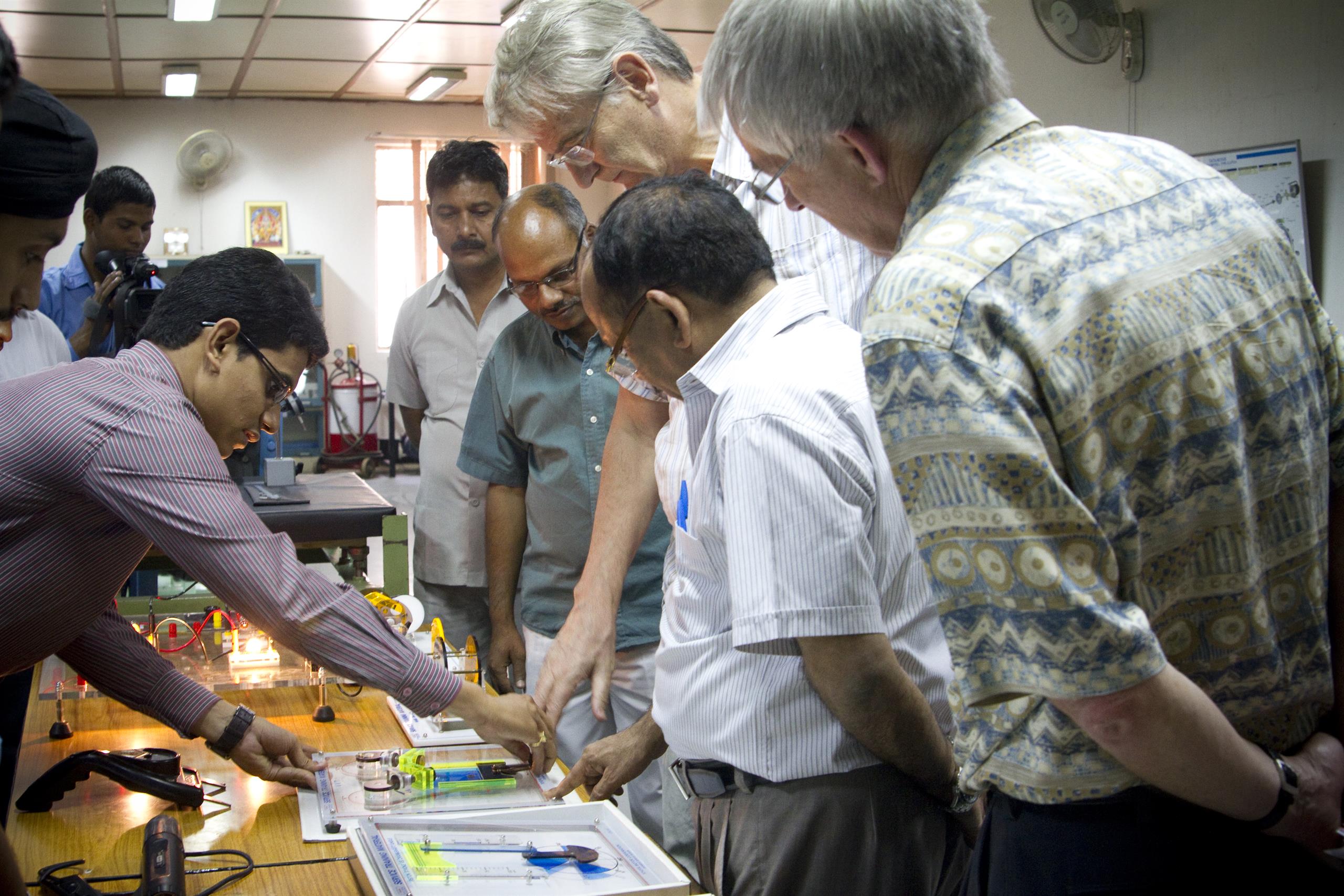Challenges
India’s National Policy on Skill Development sets out to empower all individuals to gain access to knowledge and decent employment by providing nationally and internationally recognised qualifications.
Currently, only one in twenty Indians aged 15-25 years has a Technical, Vocational, Education or Training (TVET) qualification and 90% of the workforce is engaged in the informal labour sector.

Key facts
-
The project is funded by the European Union in partnership with the Ministry of Labour and Employment of the Government of India, and the National Skills Development Corporation.
-
Technical assistance to the project has been provided by a consortium led by Cambridge Education in partnership with Deutsche Gesellschaftfuer Internationale Zusammenarbeit (GIZ), Aarhus Tech, Scottish Qualifications Authority and City and Guilds.
-
The team consists of high calibre international and national professionals who can together draw upon extensive experience in a wide range of countries, many of which are addressing similar challenges.
Solution
The India-EU Skills Development Project was launched to support the government in implementing this policy and reach its ambitious target. Running for four and a half years, the project support skills development in India by building the capacity of key national players as well as both public and private state-level institutions.
The National Qualifications Framework and the Labour Market Information System form the two key components of the India-EU Skills Development Project:
-
A ‘National Qualifications Framework’ is an instrument for classifying qualifications by matching learning achievements with specific levels - they improve the transparency, access, progression and quality of qualifications in relation to the labour market and civil society. They enable common understanding of what a qualification means.
-
A ‘Labour Market Information System’ gathers and analyses reliable up-to-date information on current demands for skills and trends for the foreseeable future. This data can then be used by employers, training providers, trainees and potential trainees to make informed decisions about training capacity, recruitment, enrolment and career choice. This system provides the crucial connection between the supply and demand sides of the labour market.
Stakeholder groups worked to support the implementation of each of these components. These groups are formed of appointed staff from national and state levels, from the public and private sectors. The project has been piloted at state level during three years, targeting implementation activities in one industrial sector per year. In the first year, the project focused on the automotive sector in Maharashtra, Karnataka and Tamil Nadu.
Value and benefits
-
Having robust and effective quality assurance (QA) across the skills and TVET system in India is clearly crucial. This means that students coming out of vocational education and training have relevant, up-to-date and high quality skills that employers need.
-
As the work on a unified qualification framework has progressed, one strand of the project has been developing proposals for a QA framework to support this.
-
There has been great progress in developing the objectives and principles that will form the backbone of the QA framework and various perspectives are considered to provide a model that can be tested in the coming months to operate the QA system.




